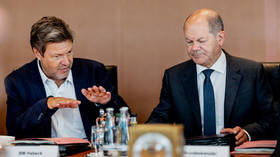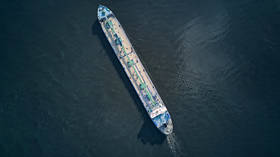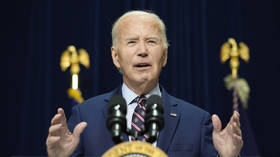Germany understating dependence on Russian oil – Die Welt

Germany’s Die Welt newspaper has cast doubt over Energy Minister Robert Habeck’s claim of success in cutting back on Russian oil imports, accusing him of wild exaggerations in a report on Saturday.
In late April, the minister said Berlin had reduced its reliance on Russian crude by enough to make a full embargo “manageable.” Habeck claimed the share of Russian oil in Germany’s imports had fallen to about 12% from 35% before the events in Ukraine.
Habek's statement was “apparently more of a spontaneous estimate,” Jens Spahn, deputy head of the opposition Christian Democratic Union (CDU) faction, was quoted as saying by the paper.
The latest available data from the Ministry of Economic Affairs, released in response to a request from the politician, showed that in May Russian oil accounted for 27.8 % of Germany’s crude imports.
The discrepancy between Habeck's 12% claim and the actual figure could be explained the politician’s use of data provided by oil companies.
“The oil-importing companies had signalled at the time that they could escape contracts with Russia – so that in the event of an immediate embargo or a supply stop by Russia would have had the opportunity to obtain oil from other countries,” the Economy Ministry said, commenting on the issue.
In May, the EU approved a partial ban on Russian oil, pledging to block 90% of imports by 2023. The bloc-wide ban targets crude that arrives by sea but leaves some exemptions for pipeline imports. Meanwhile, the leaders of the Group of Seven (G7) nations have agreed to discuss the idea of a threshold above which Russian oil will not be bought.
The conflict in Ukraine has resulted in an all-out sanctions war against Russia, targeting commodities including oil and gas, and contributing to soaring energy prices worldwide.
For more stories on economy & finance visit RT's business section













